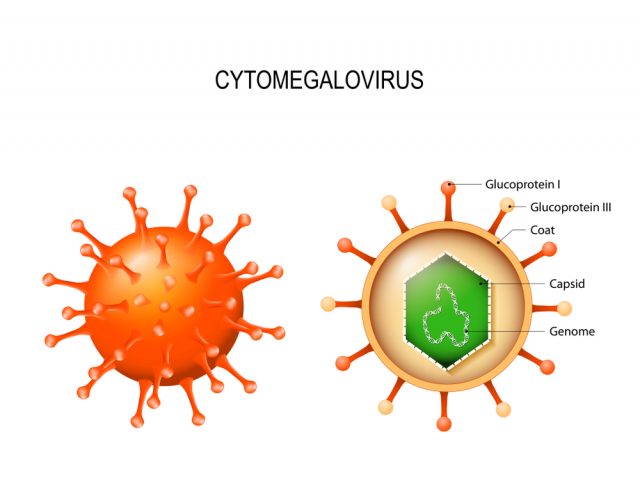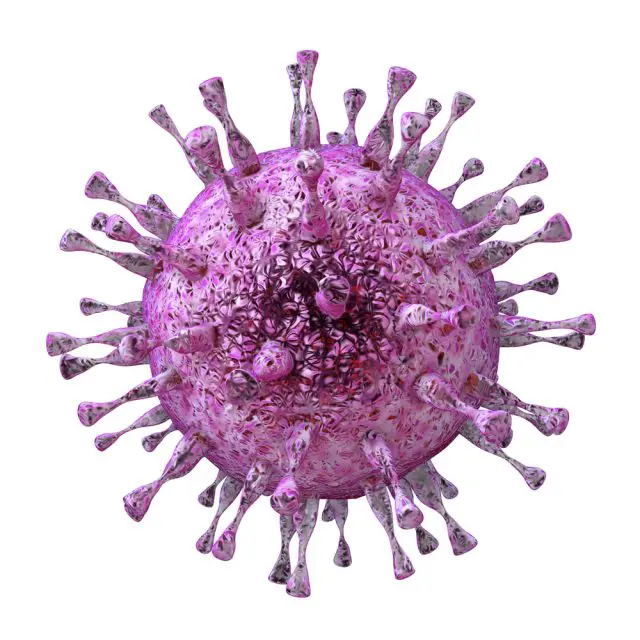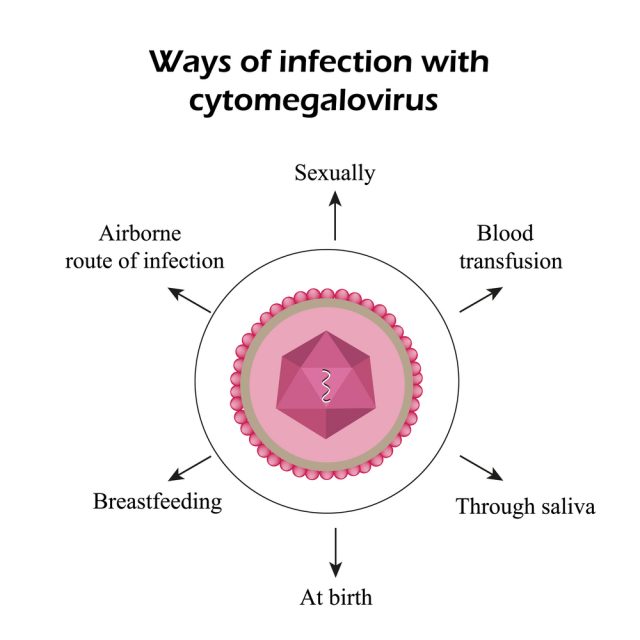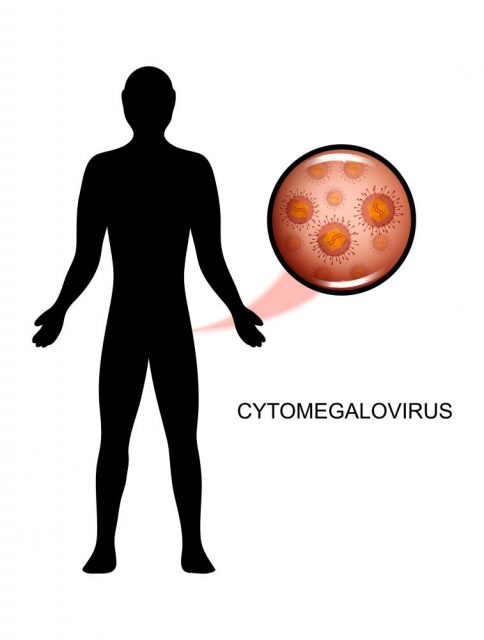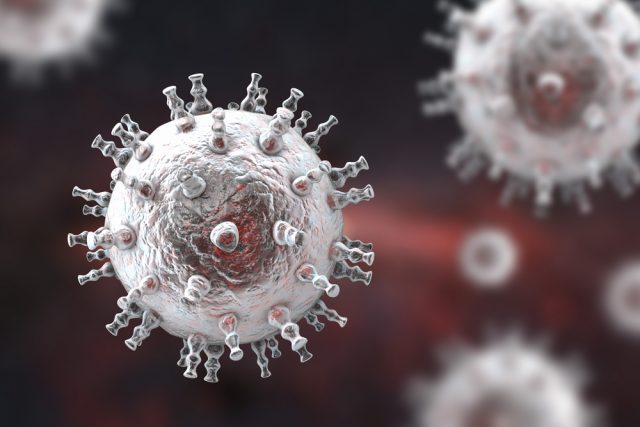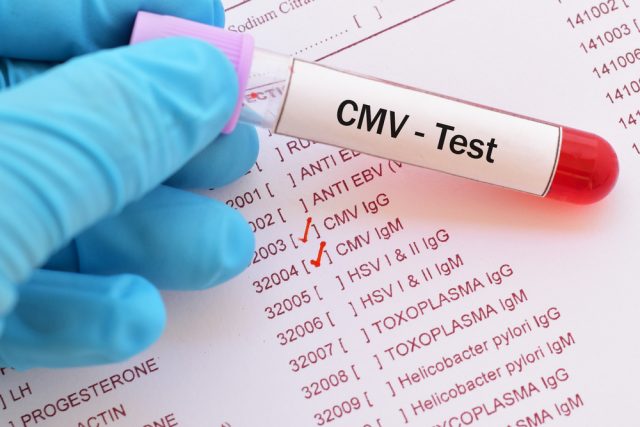Cytomegalovirus (CMV) Infection
Introduction
The cytomegalovirus defintion is a virus that “produces very mild symptoms”. If you don’t already know, cytomegalovirus is actually a member of the same family as the herpes virus. Similarly, it can infect anyone and there is no cure. Symptoms don’t always show, therefore many people don’t even realize they have the infection. As such, the virus can spread rather quickly and completely under the radar.
Of course, that’s only true for otherwise healthy individuals. There is a category of “at risk” individuals who can be seriously affected by the cytomegalovirus. This includes children, pregnant women, and those with compromised immune systems.
For individuals at risk, the virus can become deadly. Please thoroughly read the “cytomegalovirus interactions” section for more information about the interaction with other viruses.
Cytomegalovirus Causes
Since it is related to the herpes simplex virus, cytomegalovirus causes are similar to that of a typical STD. Cytomegalovirus can be spread through bodily fluids. This includes transmission through:
- Saliva
- Semen
- Vaginal fluids
- Blood
However, there are two additional ways to become infected with CMV and you likely wouldn’t guess them. These other methods are through tears and breast milk. As such, newborn children can become infected through mothers. Mothers and teachers and day care facilitators can become infected through children. This changes the risk factor from “people who have unprotected sex” to a much larger category of individuals. Risk factors for cytomegalovirus include:
- Children
- Pregnant women
- Cancer patients
- Individuals with a compromised immune system (including those with HIV)
- Individuals taking immune system suppressing medications
- Individuals who work with children (teachers, day care facilitators, babysitters)
- Individuals who have had a blood transfusion
- Individuals who have had an organ or marrow transplant
- Individuals that have more than one sexual partner
Since there is no cure once you have CMV, the best thing you can do it practice prevention methods. Of course, the best method to prevent getting CMV is to avoid contact with an infected individual. That’s advice a little too vague to follow, considering most healthy adults have no idea they have CMV. Instead, you can practice these methods:
- Properly dispose of all items that have come into contact with bodily fluids
- Clean all surfaces that have come into contact with bodily fluids
- Wash your hands after coming into contact with any bodily or unknown fluid
- Wash your hands after entering/exiting a day care, school, nursing home or hospital
- Wash your hands after coming into contact with children or the elderly
- Clean all toys after use (particularly in a public space, like a day care)
- Do not share glasses, utensils or straws with someone
- Be wary of organ/marrow transplants
- Be wary of blood transfusions
- If you’re on an immune suppressing medication, talk to your doctor about CMV prevention
- Avoid breast milk from an infected mother
- Avoid intimate or sexual contact with an infected individual
- Always wear protection during sexual acts to prevent spreading unknown diseases
- Take good care of your body and mind
- Immediately treat any symptoms of the cold, flu, or allergies to avoid compromising your immune system
Cytomegalovirus Symptoms
Unfortunately, many people do not realize they have CMV until the symptoms begin to show. For some, this never happens. For others, the symptoms are often misidentified as they closely mirror the symptoms of infectious mononucleosis (mono).
Some of the symptoms include:
- Fever
- General unwell feeling
- Fatigue*
- Nausea*
- Diarrhea*
- Swollen lymph nodes
- Sore or aching throat
- Muscles aches and pains
- Loss of appetite
- Enlarged liver
- Enlarged spleen
- Yellow eyes*
*These symptoms are largely associated with hepatitis, but can be caused by CMV as well.
During dormant periods, the infection isn’t contagious. During active periods, the infection can be easily spread through bodily fluids. It is estimated that 80% of adults over the age of 40 have had CMV. Again, CMV is something that will stay with you forever. It may seem hard to avoid when you look at the numbers. It is, because so many people don’t even know they have it. For the most part, a healthy individual is capable of dealing with CMV on their own through their own immune system. But that isn’t always the case. The next section covers individuals at risk for CMV and the interactions of other diseases.
The dormant virus can become active when the host is:
- Under extreme stress
- Fatigued or exhausted by life
- Hasn’t been sleeping properly
- Undernourished
- Has a flu/cold or other infection (can include allergies)
Cytomegalovirus Interactions with Other Viruses
For individuals with a compromised immune system, a CMV infection can lead to serious complications. As they lack the antibodies to fight the infection, the virus can end up spreading. This can cause many long-term issues, such as retinitis, hepatitis, and pneumonia to name a few. In addition CMV can amplify the effects of:
- HIV
- Hepatitis
- Retinitis
- Esophagitis
- Colitis
- Cancer
- Nerve damage
- Liver damage
We’ll look at this list in more detail.
Cytomegalovirus retinitis is categorized by blurred vision or difficulty seeing. This complication is more common in those who are HIV positive as a result of the T cell count dropping. If there are signs of cytomegalovirus retinitis, you need to seek medical attention. Ignoring these symptoms may lead to permanent blindness. Cytomegalovirus and HIV have a variety of other interactions that include peripheral nerve damage and a disease of the gastrointestinal tract (better known as esophagitis or colitis). The relationship between cytomegalovirus and HIV is fairly simple. The risk for HIV is significantly higher in those who have a cytomegalovirus infection. Again, this is because of the lack of antibodies. If an individual with HIV encounters the cytomegalovirus, it’s a medical emergency.
Cytomegalovirus infection in cancer patients is another issue regarding a weakened immune system, generally a result of undergoing chemotherapy. Recent studies have been looking at the relationship between cytomegalovirus and breast cancer. Although there is no direct proof that it causes or worsens the effects of breast cancer, it has been observed that CMV seems to have a relationship with the metastasis of breast cancer. In other words, it definitely plays a role. That can be bad news for women, but it’s not the worst thing that a woman with CMV can experience.
Cytomegalovirus and pregnancy have serious repercussions. Largely, a woman who is pregnant will not become infected with CMV. However, 30% of women pass the CMV infection to their unborn children. This is referred to as congenital CMV and it happens as a result of the CMV infection becoming active during the pregnancy. Prior to the birth, a woman may not even know she had a CMV infection. Unfortunately, 1 in 150 children are born with this infection. At birth, 10% will be showing symptoms of the infection (premature birth, yellow skin or eyes, poorly functioning liver, rashes or splotches of purple, pneumonia, seizures). 60% of the children born with congenital CMV will end up showing symptoms later in life. If a pregnant woman has any suspicion she had come into contact with CMV, she should seek medical advice. For some women, severe cases of CMV can even lead to miscarriages.
Diagnosis Through A Cytomegalovirus Blood Test
A cytomegalovirus blood test is typically the first step to determining if you have the virus. It’s common that anyone showing symptoms would go in for testing. In addition, you may be asked to provide a urine sample or other bodily fluids. Again, this is typical. It depends on the severity of the symptoms and any risk factors that might play a role.
In the instance of an unborn baby, a cytomegalovirus blood test is only valid for the mother. In order to test if the baby has been exposed, the doctor will need to same the amniotic fluid. This is only done if the mother has the infection or there are abnormalities visible during the ultrasound. CMV can cause some development deficiencies in newborns, such as premature birth, a smaller head, and cause the baby to be underweight at birth.
If there is any sign of the virus present during the pregnancy, the newborn will need to be tested within three weeks of the birth. Afterwards, it’s impossible to tell if the virus would have been caused by the pregnancy itself or another environmental factor.
It is advised that anyone in the risk category gets a cytomegalovirus blood test done by their active doctor or physician. If there are signs of the virus, knowing sooner is better than finding out too late.
Names for this test
- CMV Blood Test
- CMV by PCR Blood Test
- Cytomegalovirus IgG and IgM Antibodies Blood Test.
Cytomegalovirus Treatment Options
There is no cure for CMV as it seems to elude most modern science. It’s one of those viruses that adapts to threats and manages to survive. However, there are cytomegalovirus treatment options available. The treatments depend, again, on the severity of the symptoms or the risk factors involved. Typically, your doctor will prescribe an antiviral medication. This is useful for slowing down the reproduction rate of the virus. It isn’t good for much else. Some of the medications used are:
- Ganciclovir or Cytovene
- Valganciclovir or Valcyte
- Foscarnet or Foscavir
In some rare cases, a different antiviral medication is used called cidofovir or vistide. This is not prescribed often as it has a known toxicity to kidneys. However, it may be used if other antiviral medications don’t seem to be working.
Although cytomegalovirus natural remedies aren’t proven 100% efficient, you can always give them a try. Again, these remedies cannot prevent or get rid of the virus. They simply slow it down. Here are a few options you can look into or ask your doctor about:
- Saint John’s Wart
- Lysine
- Vitamin B&C supplements
Largely, any immune boosting supplements will be helpful to decrease the presence of the virus itself. Again, always ask your doctor before trying a home remedy.
Note: There are experimental vaccines being researched and studied. However, nothing is available on the market right now.

